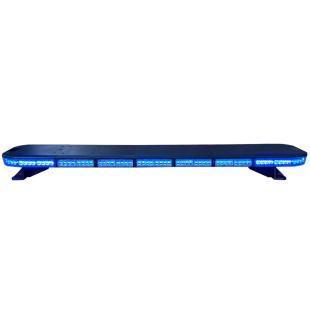
French legislation on the possession and use of flashing lights
Share
Flashing lights, these light devices often used on priority vehicles, attract attention by their essential function: to signal an emergency situation or a need for priority. In France, their possession and use are strictly regulated by law. However, gray areas remain in certain cases. Here is an overview of the rules in force, authorizations and legal loopholes.
1. Who can use a flashing light in France?
In France, the use of flashing lights is regulated by the Highway Code and other legal texts. The authorization to use flashing lights depends on the color of the device and the type of vehicle:
Blue flashing lights: priority vehicles
The blue flashing light is reserved for priority vehicles , which must comply with specific rules:
-
Vehicles affected :
- Ambulances,
- Police vehicles,
- Firefighters,
- Gendarmerie.
-
Terms of Use :
- They can only be used during an urgent mission requiring priority of passage .
- The blue flashing light must be accompanied by a specific sound signal (two-tone type).
Orange flashing lights: vehicles with special progression
The orange flashing light, often used to signal danger, is authorized in specific situations:
-
Vehicles affected :
- Public works (backhoe loaders, dump trucks),
- Tow trucks,
- Emergency vehicles (electricity, gas, etc.).
-
Terms of Use :
- It is only used to warn other road users of a potential danger .
- It does not give any right of priority or violation of the Highway Code.
Other colors (red, green)
- Red flashing light : Very rarely used in France, it is mainly reserved for military or protocol uses.
- Green flashing light : Used in medical settings, particularly to signal an organ transplant in progress.
2. Possession of flashing lights: what does the law say?
Acquisition and holding
- Legal : Owning a flashing light, whatever its color, is not prohibited for an individual, as long as it is not used on a vehicle in circulation.
- Prohibited : Fitting a flashing light (particularly blue or orange) to an unauthorized vehicle may be considered an attempted vehicle theft.
Private use
- You may use a flashing light on private land (for example, at events or exercises). However, it must not be visible or activated on public roads.
Sanctions
In the event of an infringement:
- Usurpation of a priority vehicle (blue flashing light): 1 year in prison and a €15,000 fine.
- Unauthorized installation of a lighting device : Fine of €135, possible loss of points on the license.
3. Legal loopholes surrounding flashing lights
Although the regulations are strict, some cases may fall into gray areas:
-
Collector or decorative vehicles :
- Some vintage car enthusiasts may own blue or orange flashing lights for restoration or display purposes. As long as they are not used on public roads, this is not prohibited.
-
Purchase and resale :
- Flashing lights are available over the counter, including online. There are no strict controls on their purchase.
-
Recreational use :
- If a flashing light is used during festive events (for example, for a parade on private land), it is difficult to control its use.
4. Special cases and special authorizations
In certain cases, authorization may be required to use a flashing light:
-
Intervention companies :
- Companies such as tow trucks must obtain prefectural authorization to equip their vehicles with orange flashing lights.
-
Specific transport :
- The green flashing light for organ transplants is subject to strict regulations and requires medical justification.
5. Tips for staying legal
- Avoid using blue or red flashing lights if you are not authorised to do so: even fitting them to a stationary vehicle can result in penalties.
- Respect the authorized uses for orange flashing lights: they do not confer any right of way.
- Check with your local prefecture if you have any doubts about a specific authorization.
Conclusion
In France, the regulations on flashing lights aim to prevent abuse while ensuring the safety of road users. While private possession is tolerated, use on public roads remains strictly regulated to ensure clear and safe use. Before installing or using a flashing light on a vehicle, it is essential to understand your rights and obligations to avoid any risk of sanction.